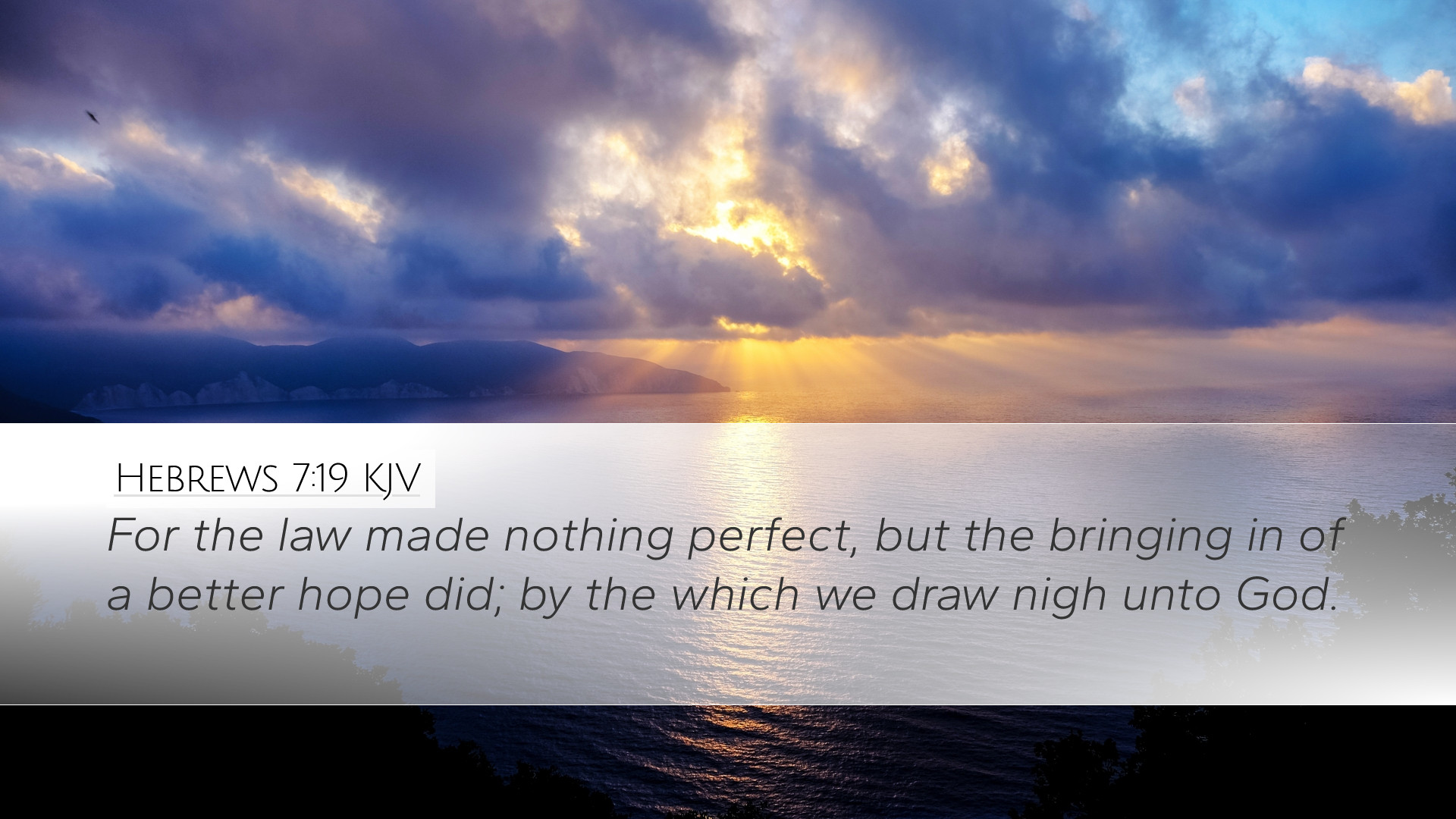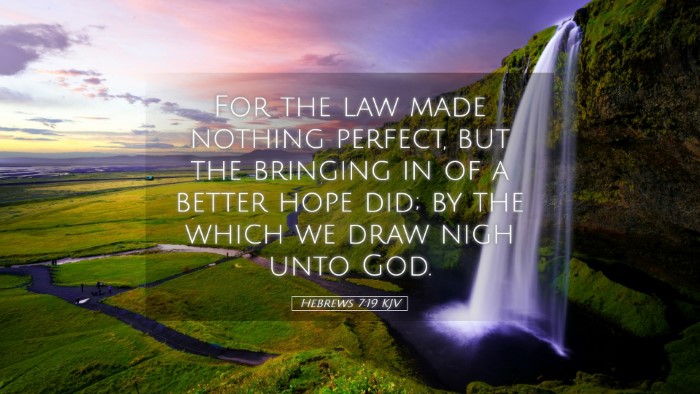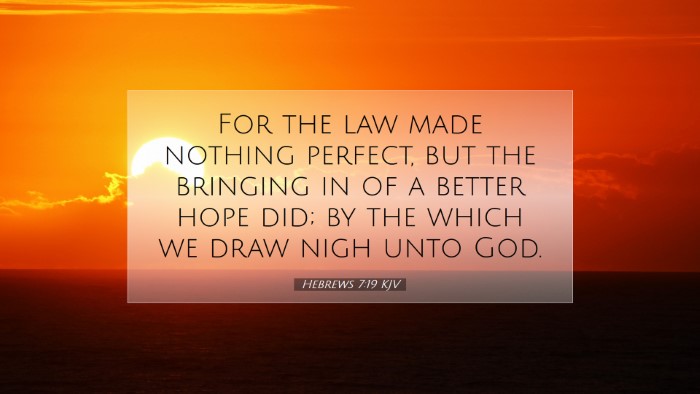Commentary on Hebrews 7:19
Hebrews 7:19 states, "For the law made nothing perfect; but the bringing in of a better hope did; by the which we draw nigh unto God." This verse succinctly reflects the inherent limitations of the Mosaic Law while affirming the transformative power of the new covenant established through Christ. Here, we shall explore the theological significance and the implications of the text through insights from respected public domain commentators.
Introduction to the Context
The Epistle to the Hebrews is written to demonstrate the superiority of Christ and the new covenant over the old covenant represented by the Mosaic Law. Chapter 7 centers on the priesthood of Melchizedek and how Jesus embodies this eternal priesthood, superseding the Levitical priesthood.
The Law and Its Limitations
The verse begins with the assertion that "the law made nothing perfect." This is a critical statement regarding the law's inability to bring about true perfection or righteousness in the believer's life.
- Matthew Henry: He notes that the law served as a guide but could never provide the completeness that the soul seeks. The law exposes sin but does not empower believers to overcome it.
- Albert Barnes: Barnes elaborates that the law was essential for understanding sin and the need for atonement, yet it lacked the capacity to grant grace or enable a righteous life.
- Adam Clarke: Clarke emphasizes that while the law was a significant part of God's revelation, it was intended to lead to Christ. He points out that the perfection sought by humanity exceeds the capabilities of the law.
A Better Hope
The second part of the verse introduces "a better hope," which is a defining feature of the new covenant through Jesus Christ. This hope is fundamentally different from what the law offered.
- Matthew Henry: He explains that this 'better hope' is derived from Christ’s sacrificial work, through which believers can indeed approach God with confidence, knowing their sins are forgiven.
- Albert Barnes: Barnes describes this hope as not just a distant expectation but an immediate assurance that believers can have direct access to God because of Christ’s mediatory role.
- Adam Clarke: Clarke adds that this hope transforms the believer’s relationship with God, introducing an element of personal connection and intimacy that the law could not facilitate.
Access to God
Furthermore, the latter portion of the verse emphasizes that it is "by the which we draw nigh unto God." This access is paramount in understanding the believer’s new identity and privileges in Christ.
- Matthew Henry: Henry reflects on the significance of not only having access but the confidence with which believers can approach God’s throne. He states, "Through Jesus, we are not just spectators but participants in the divine life."
- Albert Barnes: Barnes highlights that this drawing near signifies a relational aspect, pointing towards the idea that through Christ, believers are integrated into God’s family, thus enjoying closeness with Him.
- Adam Clarke: Clarke indicates that the process of drawing near involves both an awareness of God's holiness and a reliance on Christ’s righteousness, which enables believers to stand in God’s presence without fear.
Theological Implications
This verse holds substantial theological weight, particularly regarding the nature of grace, redemption, and the believer's relationship with God:
- Grace Over Law: The transition from law to grace is a central theme. The New Testament underscores that while the law served a purpose, it requires the grace extended through Christ for true perfection and salvation.
- Christ as Mediator: Christ's role as the eternal high priest according to the order of Melchizedek highlights His unique position to mediate between God and humanity, fulfilling what the law could never achieve.
- Hope in Christ: The concept of a better hope reflects the transformative power of faith in Christ, offering a genuine expectation of eternal life and relationship with God that transcends the limitations of the law.
Practical Applications for Believers
For pastors, students, and theologians, this passage encourages several practical applications:
- Embrace the New Covenant: Understanding and teaching about the new covenant can deepen one’s faith and understanding of God’s grace.
- Encourage Intimacy with God: Leaders can inspire congregations to pursue a closer relationship with God, emphasizing that through Christ, they have the privilege to draw near.
- Focus on Transformation: Acknowledging the limitations of the law can guide believers toward reliance on the Holy Spirit for transformation in their lives, rather than merely adhering to rules.
Conclusion
Hebrews 7:19 profoundly encapsulates the transition from the limitations of the law to the life-changing hope found in Christ. This verse, richly explored through the insights of Matthew Henry, Albert Barnes, and Adam Clarke, invites believers to reflect on their access to God through Christ and the transformative nature of their faith. As they delve into this text, may they find encouragement and deeper understanding of their identity as children of God.


